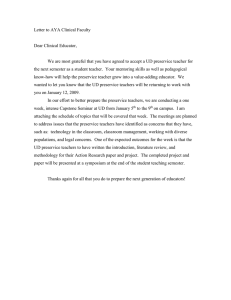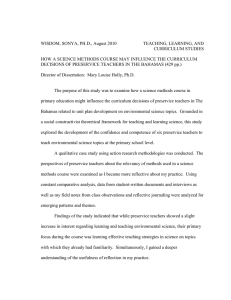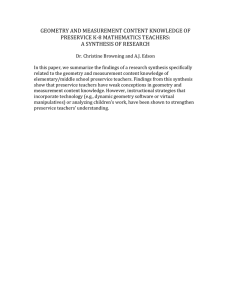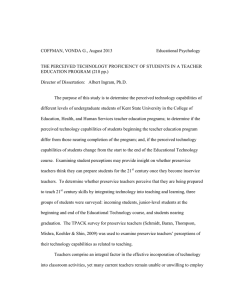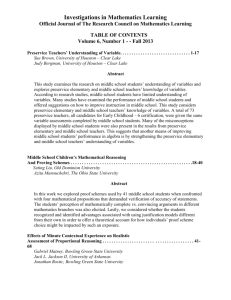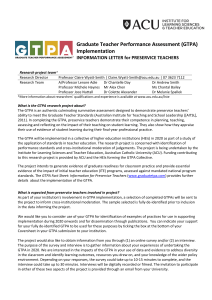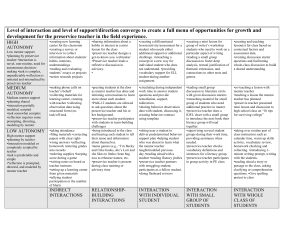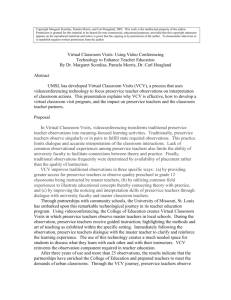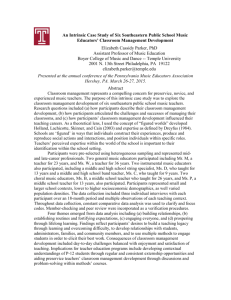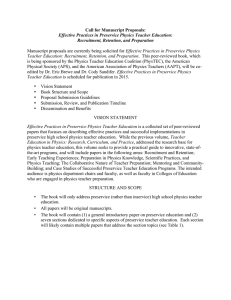Abstract This study investigated perceptions of preservice primary student teachers of... preparatory program. In particular, the study wanted to find out...
advertisement
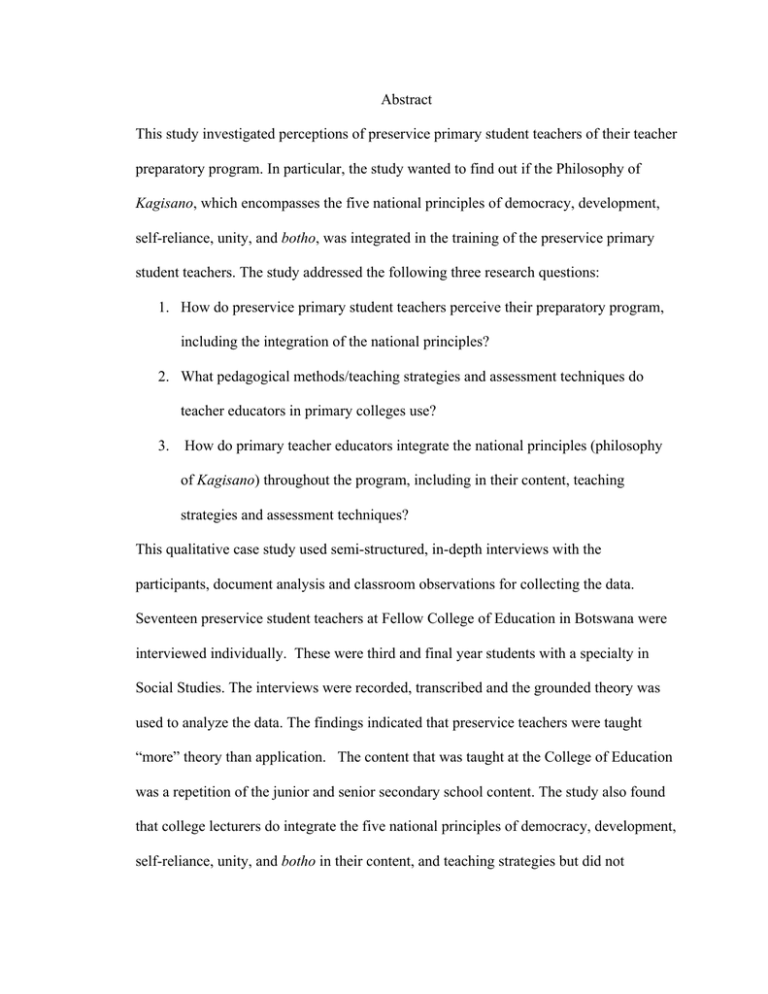
Abstract This study investigated perceptions of preservice primary student teachers of their teacher preparatory program. In particular, the study wanted to find out if the Philosophy of Kagisano, which encompasses the five national principles of democracy, development, self-reliance, unity, and botho, was integrated in the training of the preservice primary student teachers. The study addressed the following three research questions: 1. How do preservice primary student teachers perceive their preparatory program, including the integration of the national principles? 2. What pedagogical methods/teaching strategies and assessment techniques do teacher educators in primary colleges use? 3. How do primary teacher educators integrate the national principles (philosophy of Kagisano) throughout the program, including in their content, teaching strategies and assessment techniques? This qualitative case study used semi-structured, in-depth interviews with the participants, document analysis and classroom observations for collecting the data. Seventeen preservice student teachers at Fellow College of Education in Botswana were interviewed individually. These were third and final year students with a specialty in Social Studies. The interviews were recorded, transcribed and the grounded theory was used to analyze the data. The findings indicated that preservice teachers were taught “more” theory than application. The content that was taught at the College of Education was a repetition of the junior and senior secondary school content. The study also found that college lecturers do integrate the five national principles of democracy, development, self-reliance, unity, and botho in their content, and teaching strategies but did not integrate them in their assessment techniques. Furthermore, the study found that some inconsistency in the grading of students’ work existed.
